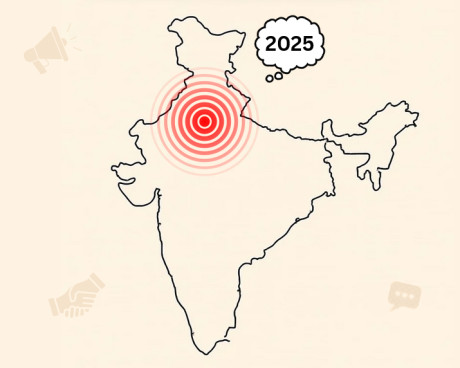
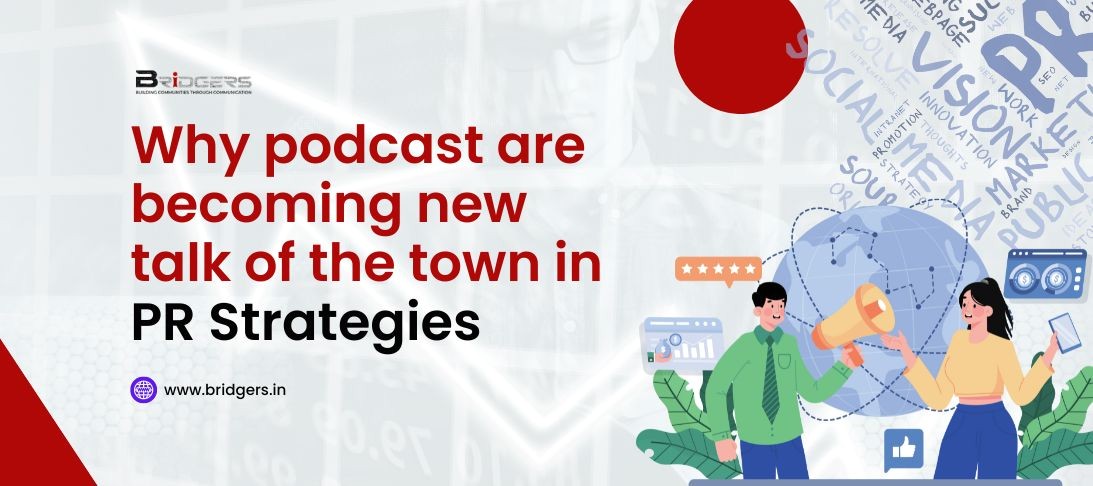
Why podcasts are becoming the new talk of the town in PR strategies
The impact of Public Relations (PR) directly translates to bringing multidimensional, yet larger-than-life storytelling to the public domain. While strategizing and driving narratives remains arguably the most crucial part of successful PR campaigns — they are designed to play a single part in a comprehensive process. To ensure success, PR campaigns require precise positioning that reverberates audience interests; and the digitally driven world has presented us with the perfectly equipped tool for overcoming this challenge — podcasts.
Historically, the nature of PR has remained formal. However, changing world dynamics across levels have directly translated into transforming the PR industry, expanding its scope of work from top leaders to the common man. Presently, PR is done for any individual or organisation irrespective of societal contribution - opening up a brand new avenue of operational excellence. This paradigm shift necessitated introducing informal ways to ensure success in PR campaigns, where the effectiveness and versatility of podcasts have been incomparable. Furthermore, the digital shift of the world has supplemented this comprehensive change, as driving narratives are no longer limited to newspapers and thought leaders are empowered through the unrestricted nature of podcasts.
Rise of podcasts
The print media was once the cornerstone of all PR efforts. Newspapers and magazines acted as the primary tools to drive narratives, which were also limited to media. However, as the internet sensationalised the world with widespread adoption, the focus of conventional media outlets soon converged on generating clicks. The transformation process did not stop here, as influencers emerged soon, offering a more sophisticated yet personal way of connecting to the target audience. Finally, podcasts arrived on the scene and quickly became the go-to solution to drive narratives, offer insights, share knowledge and connect with the masses in comprehensive PR strategies.
The rise of podcasts to become one of the most popular PR tools of all time was further boosted by the pandemic. During this time, countless conventional media platforms were forced to scale down operations, especially print. Many of these platforms moved to digital mediums altogether. A report by Northwestern University suggests that in the USA, over 360 newspapers were shut down following the pandemic. While no sincere data has been published In India, many newspaper editions in the country were shut down owing to numerous reasons, some of which were transformed digitally. The gap left by these newspapers was soon filled by new mass communication tools, the most important of them podcasts.
However, it was not only the pandemic that resulted in the rise of podcasts.— they existed well before even the last decade. However, the virtually infinite internet provided podcasts the necessary push to accumulate popularity. For example, Ranveer Alhabadia began Beerbiceps in 2015, whereas The Joe Rogan Experience came into existence in 2009. Arguably the most popular podcasts in India and globally, these two podcasts certainly gathered steam during lockdowns — becoming some of the most popular outlets in the world.
Why podcasts?
The most critical reason behind podcasts’ popularity is personalisation. These shows help thought leaders with a direct avenue to reach their target audience in a meaningful and personal way. The primary differentiator between podcasts and conventional media tools is that podcasts share first-hand knowledge from the source itself, whereas newspapers, TV channels, news websites and magazines all operate under multiple layers of regulation from editorial teams. Conventional media outlets can opt to showcase particular knowledge or tweak it based on editorial guidelines and journalistic ethics and regulations. Meanwhile, podcasts offer first-hand knowledge sharing from thought leaders themselves, and this unrestrictive and unregulated nature helps them to transfer much more information in comparison to traditional media outlets. Additionally, there are no foundational formats that must be followed in podcasts, whereas information in traditional media has a distinct way of presentation, including writing style, numerical inputs, usage of particular words and much more.
These aspects are essentially establishing a unique culture that not only flourishes with every passing day but adds more foundational inputs. For example, some podcasts like The Why Files and Darknet Diaries have begun to offer teasers of the extended episode, whereas others like Revisionist History have begun to introduce audio-visual inputs to transform the overall experience. Since podcasts offer first-hand knowledge-sharing measures, they also offer unparalleled storytelling that is not only information-driven but also an in-depth account. This makes podcasts the ideal narrative-driving tool in PR strategies, ensuring long-term success.
Garnering credibility
Plausibility and reputation - the twin towers of credibility boils down to one single aspect, trust. Unlike conventional media stories on print, web or television, podcasts offer a deeper account of a subject, along with experts’ views on the same. For example, Ranveer Alhabadia’s Beerbiceps episode featuring Dr S Somanath, the Chairman of ISRO offered a detailed accounting of India’s space missions, astronomy, relevant startup ecosystems in India, Sunita Williams & NASA, Elon Musk, Prime Minister Narendra Modi and other aspects. From a listener’s perspective, understanding the aforementioned events and individuals from an expert with a deeper understanding than conventional media helps to generate credibility and a sense of belonging. This makes podcasts arguably the best informal tool to drive narratives in PR strategies, helping to bring stakeholders under an umbrella of authenticity and reputation.
Most Popular Blogs
Newsletter
Categories
Related Articles
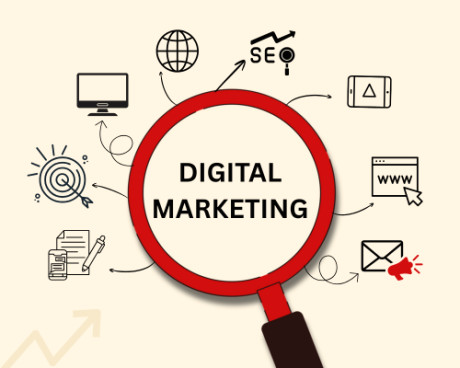
Top 10 Digital Marketing Trends for 2025
10 May 2025 / Admin
Digital PR in 2025: What is it, why is it essential, key tactics and how it helps your goals
28 April 2025 / Admin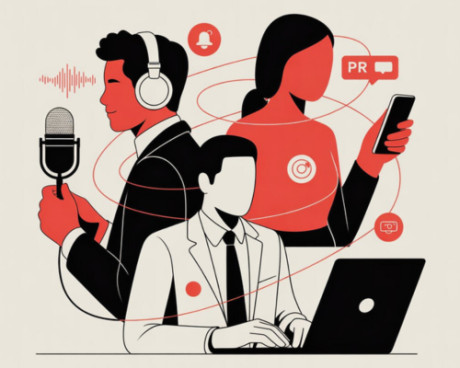
Podcasts, Influencers & More: How PR Agencies in Delhi will be Transforming Public Relations in 2025
18 January 2025 / Admin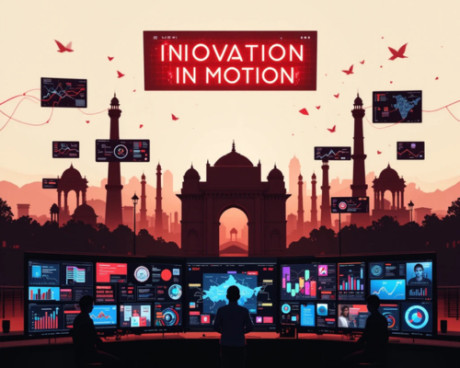
PR Agencies in Delhi: Prioritizing Innovations, Transforming Industry
26 December 2024 / Admin
PR Essentials: The Role of Understanding Journalists for Effective Media Pitching
04 November 2024 / Admin
PR vs. Marketing: What’s the Difference and How They Work Together
22 October 2024 / Admin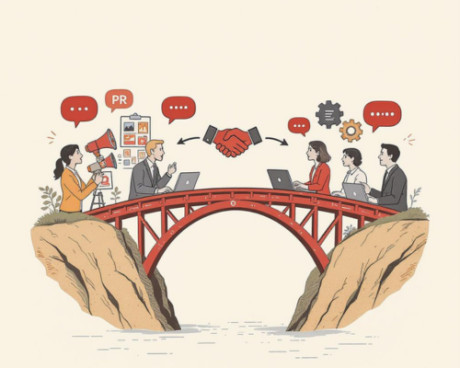
From Communication to Collaboration: Ensuring Success for PR Agencies and Corporate Communication teams
07 October 2024 / Admin

